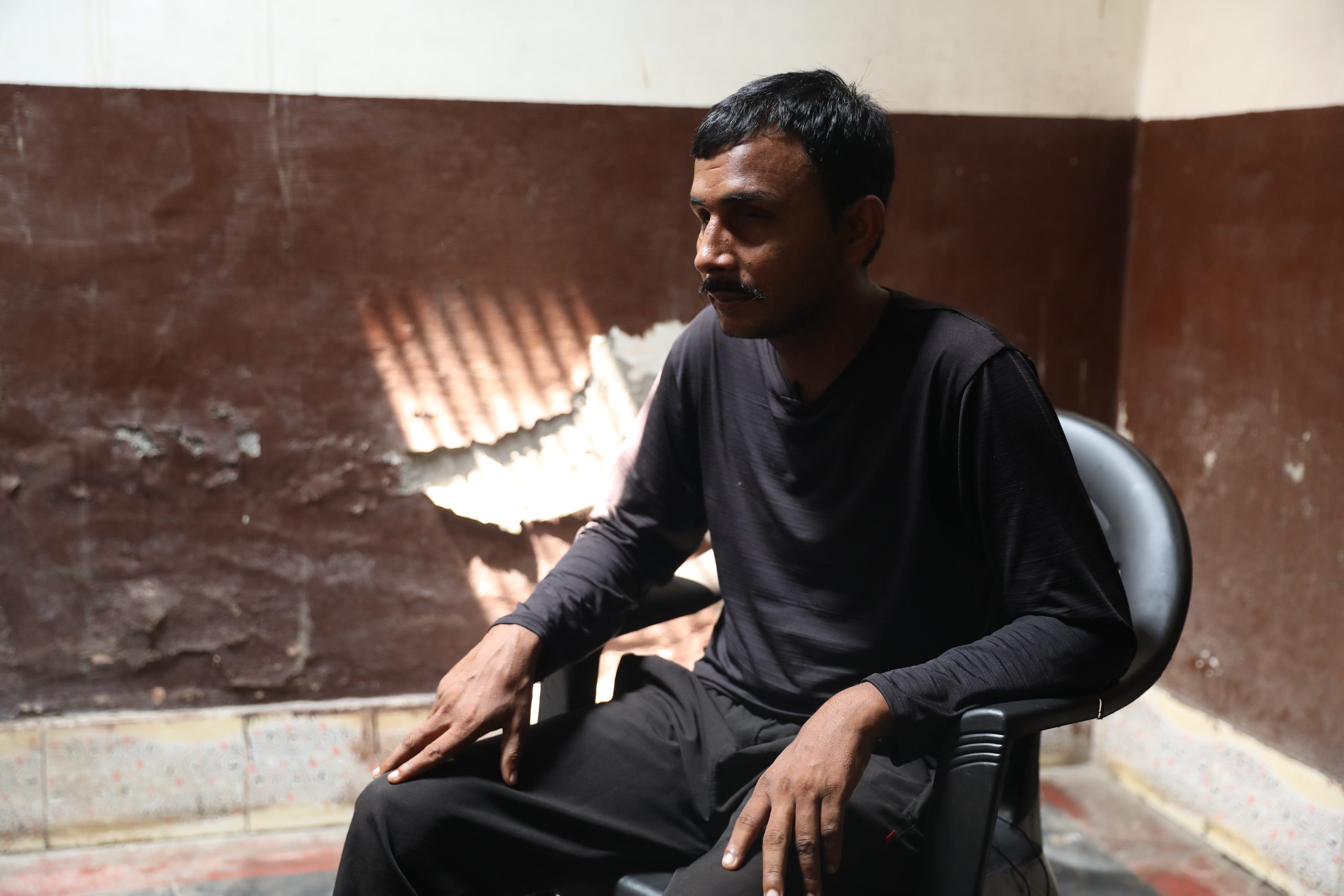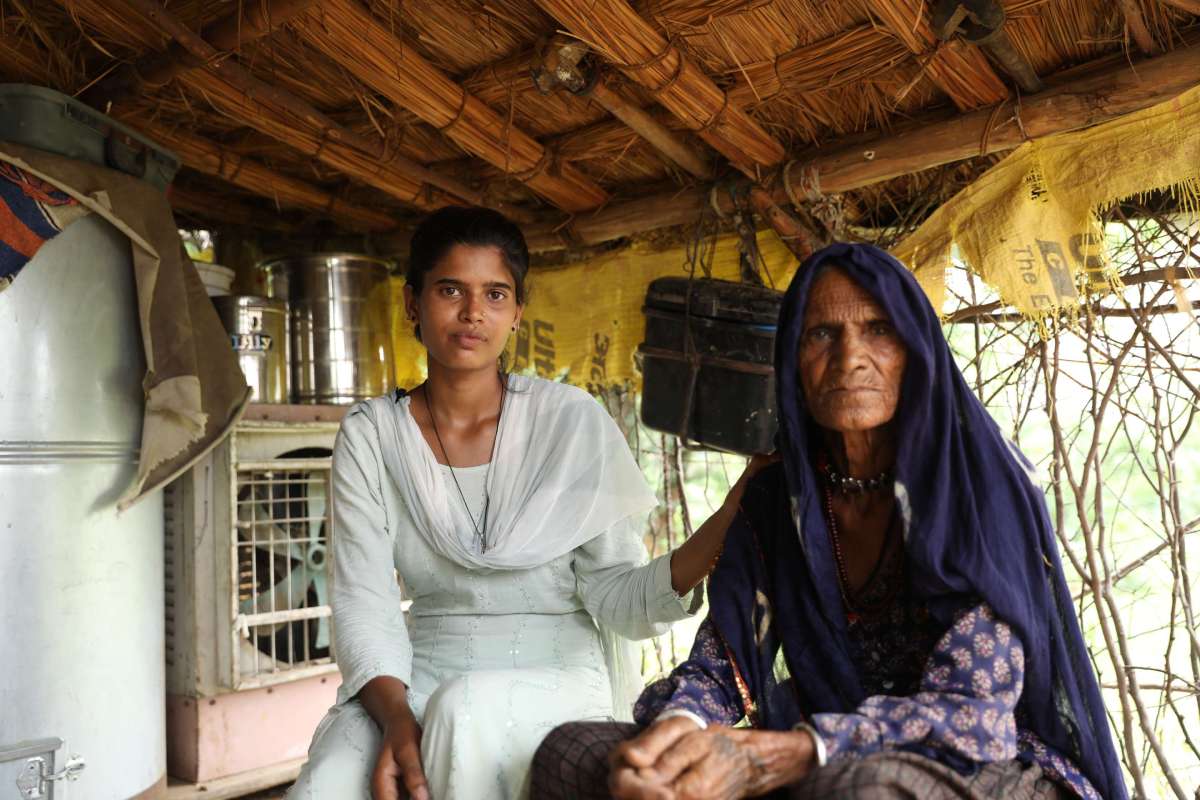Traveling from Vidisha, Madhya Pradesh, we took the left turn to Sahba Village. Vibrant houses, though in worn out conditions, neatly decorated and coated with dung cakes to keep cool. As we asked for Surjeet Lodhi’s house, the children playing replied, “Accha, Sirju Bhaiya? Aaiye!”- The kids ask us if we mean the local hero, who they call Sirju. They led us to his house, excited to knock on his doors.
Surjeet opens the door, with what already seems like a welcoming and humbling smile. Surjeet Lodhi is in his first year of pursuing journalism from Bhopal University. His relation with education goes a long way. When asked, all he says is that everything he is today, he owes to education and his teachers. He is the kind of person who will not look away from situations that make him uncomfortable. He will stare them down instead, planning a course of action to tackle them. Among many issues, the first one he challenged was the then prevalent alcoholism. In a village with approximately 800 households, there ran five illicit liquor shops. The consequences of this were rampant alcoholism, worsening health conditions, untimely deaths, anti-social behavior, domestic abuse, etc. The women told us how their husbands would not return for nights, coming back only after spending all their earnings on alcohol. If questioned or talked to bitterly, they would not hold back from thrashing the family members.
This was the story of every home- Surjeet’s being no exception. Having faced the wrath of his father countless times, Surjeet decided to take down the problem as a whole.
He engaged with grassroots activists, teachers, and women and children who were adversely affected by this behavior. Under Surjeet's leadership, they orchestrated rallies and campaigns against alcohol consumption. Surjeet penned letters to the authorities. Following months of persistent efforts, the five shops eventually succumbed to darkness. They were seized, and the shop owners were expelled from the village—a triumph still commemorated by the entire community.
This was merely one chapter in Surjeet's transformative journey. The region of Sahba was marked by ancient caste customs. The village's sole water source originated from a single well. The inherent naivety of humans often leads them to believe that everything is divisible. In Sahba, the well was partitioned into four sections—each designated for different castes. A lower caste individual was forbidden from crossing this imaginary boundary. Surjeet consistently viewed this system as flawed and obsolete. One day, a so-called ‘lower caste’ family hosted guests, and the daughter of the guests, unaware of the established division, approached the well. She subsequently endured humiliation from the upper caste for trespassing into their area.
This incident did not sit well with Surjeet, who believed in ‘atithi devo bhava’- the guest is equivalent to God. Surjeet approached the children council with the disturbing case.
They promptly decided to mobilize the entire village and urged the adult council to take decisive action against this primitive practice. Surjeet reflected, “Sometimes it feels like the village just wants to remain conservative. But I remembered that change has never felt smooth to anyone.” To foster harmony in his village, Surjeet orchestrated cross-cultural meetings and gatherings. Gradually, the negatives gave way to positives. In the current tide of time, as we strolled through the village, all we sensed was harmony and acceptance.
The ancient curse of caste discrimination slowly lifted and burst into flames. By challenging this symbol of casteism, Surjeet ignited a fire to eradicate the cruel, shallow practices associated with it. Bit by bit, the rigid lines on the lands of Sahba blurred. Today, the new generation of Sahba doesn't even know if they come from an upper or lower caste—it simply ceased to matter.
Surjeet’s compassion has garnered global recognition. In the year 2021, he was honoured with the Diana Award. When asked about receiving the award, he recalled, “I didn't even know what it meant. My teacher called me when the then Chief Minister, Shri. Shivraj Singh Chouhan, tweeted to congratulate me. My friends told me my name is now on Google.” There is boundless joy reflected on Surjeet’s face as he shares his experience with the award.
Surjeet's story resonates in every household in the village. Even though Surjeet is set to leave home soon for college, the community will always have its arms open to welcome him back. They believe that their son will bring development home, paving the way for every child in the village. The entire village is collectively proud to have a son like him, a son like Sirju.






